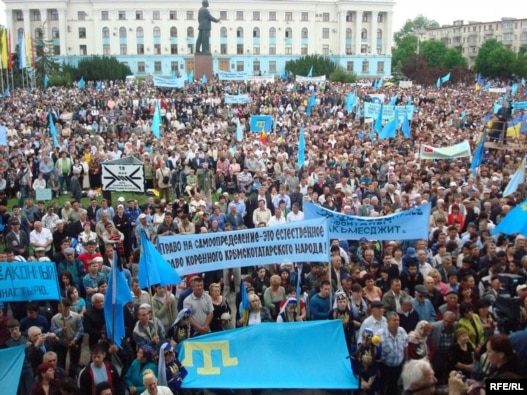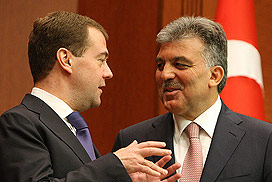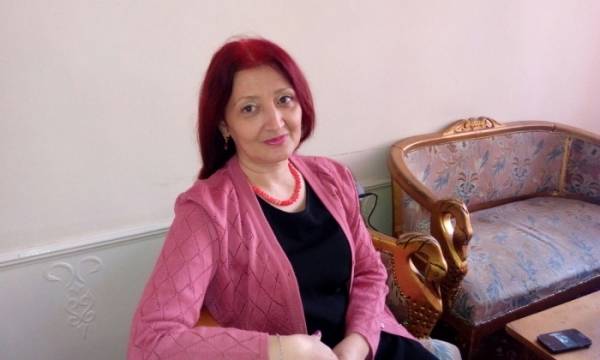The Broader Military Agenda
by Michel Chossudovsky
Global Research, June 6, 2010
The Israeli Naval Commando had prior knowledge of who was on the Turkish ship including where passengers were residing in terms of cabin layout. According to Swedish author Henning Mankell, who was on board the Marmara , “the Israeli forces attacked sleeping civilians.”
These were targeted assassinations. Specific individuals were targeted. Journalists were targeted with a view to confiscating their audio and video recording equipment and tapes.
“We were witnesses to premeditated murders,” said historian Mattias Gardell who was on the Mavi Marmara.
“…Asked about why activists on the Turkish ship had attacked the Israeli soldiers, Gardell stressed “it is not as if Israel is a police officer whom no human being has the legitimate right to defend him or herself against”:
“If you are attacked by commando troops you of course must have the right to defend yourself … Many people on this ship thought they were going to kill everyone. They were very frightened … It’s strange if people think one should not defend oneself. Should you just sit there and say: ‘Kill me’?” he said.” (See Mahdi Darius Nazemroaya, Detailed Compiled Eyewitness Accounts Confirm Cold-Blooded Murder and Executions by Israeli Military, Global Research, June 1, 2010)
“They even shot those who surrendered. Many of our friends saw this. They told me that there were handcuffed people who were shot,” (quoted by Press TV)
The Israeli Commando had an explicit order to kill.
What was the role of the United States?
The raids on the Gaza Freedom Flotilla, bear the mark of previous Israeli operations directed against unarmed civilians. It is a well established modus operandi of Israeli military-intelligence operations, which is tacitly supported by the US administration.
The killing of civilians is intended to trigger a response by Palestinian resistance forces, which in turn justifies Israeli retaliation (on “humanitarian” grounds) as well as a process of military escalation. The logic of this process was contained in Ariel Sharon`s “Operation Justified Vengeance” initiated at the outset the Sharon government in 2001. This Operation was intent upon destroying the Palestinian Authority and transforming Gaza into an urban prison. (See Michel Chossudovsky, “Operation Justified Vengeance”: Israeli Strike on Freedom Flotilla to Gaza is Part of a Broader Military Agenda, Global Research, June 1, 2010).
The Israeli attack of the Flotilla bears the fingerprints of a military intelligence operation coordinated by the IDF and Mossad, which is headed by Meir Dagan. It is worth recalling that as a young Coronel, Dagan worked closely with then defense minister Ariel Sharon in the raids on the Palestinian settlements of Sabra and Shatilla in Beirut in 1982.
There are indications that the US was consulted at the highest levels regarding the nature of this military operation. Moreover, in the wake of the attacks, both the US and the UK have unequivocally reaffirmed their support to Israel.
There are longstanding and ongoing military and intelligence relations between the US and Israel including close working ties between various agencies of government: Pentagon, National Intelligence Council, State Department, Homeland Security and their respective Israeli counterparts.
These various agencies of government are involved in routine liaison and consultations, usually directly as well as through the US Embassy in Israel, involving frequent shuttles of officials between Washington and Tel Aviv as well as exchange of personnel. Moreover, the US as well as Canada have public security cooperation agreements with Israel pertaining to the policing of international borders, including maritime borders. (See Israel-USA Homeland Security Cooperation, See also Michel Chossudovsky, The Canada-Israel “Public Security” Agreement, Global Research, 2 April 2008)
The Role of Rahm Emmanuel
Several high level US-Israel meetings were held in the months prior to the May 31st attacks.
Rahm Emmanuel, Obama’s White House chief of Staff was in Tel Aviv a week prior to the attacks. Confirmed by press reports, he had meetings behind closed doors with Prime Minister Netanyahu (May 26) as well as a private visit with President Shimon Peres on May 27.
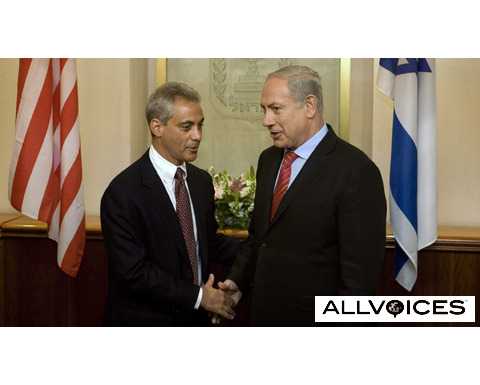
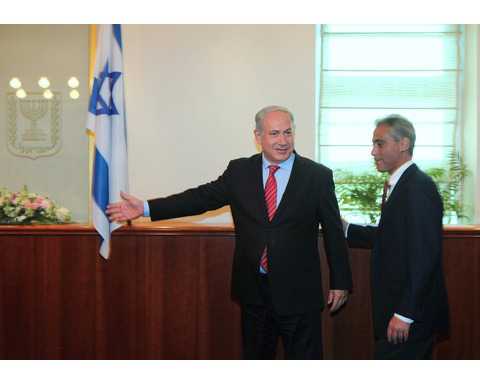
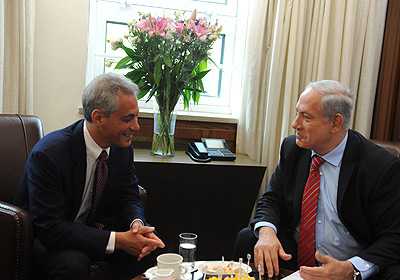
Official statements do not indicate whether other officials including cabinet ministers or IDF and Mossad officials were present at the Rahm Emmanuel-Netanyahu meeting. The Israeli press confirmed that Rahm Emmanuel had a meeting with Defense Minister Ehud Barak, whose Ministry was responsible for overseeing the Commando attack on the Flotilla. (Rahm Emanuel visits Israel to celebrate son’s bar mitzvah – Haaretz Daily Newspaper | Israel News, 23 May 2010). The White House also confirmed that Rahm Emmanuel was to meet other high-ranking Israeli officials, without providing further details. (Rahm Emanuel in Israel for Son’s Bar Mitzvah, May Meet With Officials)
“Our Man in the White House”
While born in the US, Rahm Emmanuel also holds Israeli citizenship and has served in the Israeli military during the First Gulf War (1991).
Rahm is also known for his connections to the pro-Israeli lobby in the US. The Israeli newspaper Maariv calls him “Our Man in the White House” (quoted in Irish Times, March 13, 2010). Rahm Emmanuel gave his support to Obama in the November 2008 presidential elections following Obama`s address to the pro-Israeli lobby AIPAC.
At the time of Rahm Emmanuel’s confirmation as White House chief of staff, there were reports in the Middle East media of Rahm Emanuel’s connections to Israeli intelligence.
The exact nature of Rahm Emmanuel’s ties to the Israeli military and intelligence apparatus, however, is not the main issue. What we are dealing with is a broad process of bilateral coordination and decision-making between the two governments in the areas of foreign policy, intelligence and military planning, which has been ongoing for more than 50 years. In this regard, Israel, although exercising a certain degree of autonomy in military and strategic decisions, will not act unilaterally, without receiving the “green light” from Washington. Rahm Emmanuel`s meetings with the prime minister and Israeli officials are part of this ongoing process.
Rahm Emmanuel’s meetings in Tel Aviv on May 26 were a routine follow-up to visits to Washington by Prime Minister Netanyahu in March and by Minister of Defense Ehud Barak in late April. In these various bilateral US-Israel encounters at the White House, the state Department and the Pentagon, Rahm Emmanuel invariably plays a key role.
While the pro-Israeli lobby in the US influences party politics in America, Washington also influences the direction of Israeli politics. There have been reports to the effect that Rahm Emmanuel would “lead a team of high octane Democratic party pro-Israel political operatives to run the campaign for the Defense Minister Ehud Barak” against Netanyahu in the next Israeli election. (Ira Glunts, Could Rahm Emanuel Help Barak Unseat Netanyahu? Palestine Chronicle, June 2, 2010)
The April 27 meeting between US Defense Secretary Robert Gates and Defense Minister Barak pertained to “a range of important defense issues” directly or indirectly related to the status of the Palestinian territories under Israeli occupation:
“As President Obama has affirmed, the United States commitment to Israel’s security is unshakable, and our defense relationship is stronger than ever, to the mutual benefit of both nations. The United States and our ally Israel share many of the same security challenges, from combating terrorism to confronting the threat posed by Iran’s nuclear-weapons program.
For years, the United States and Israel have worked together to prepare our armed forces to meet these and other challenges, a recent major example being the Juniper Cobra joint exercise held last October. Our work together on missile-defense technology is ongoing, and the United States will continue to ensure that Israel maintains its qualitative military edge.” (Press Conference with Secretary Gates and Israeli Defense Minister Barak, April 2010 – Council on Foreign Relations April 27, 2010)
These consultations pertained to ongoing military preparations regarding Iran. Both Israel and the US have recently announced that a pre-emptive attack against Iran has been contemplated.
Washington views Israel as being “‘integrated into America’s military architecture,’ especially in the missile defense sphere.” (quoted in Emanuel to rabbis: US ‘screwed up’ Jerusalem Post, statement of Dennis Ross, who is in charge of the US administration’s Iran policy in the White House, May 16, 2010).
Targeting Iran
The attack on the Freedom Flotilla, might appear as a separate and distinct humanitiarian issue, unrelated to US-Israeli war plans. But from the standpoint of both Tel Aviv and Washington, it is part of the broader military agenda. It is intended to create conditions favoring an atmosphere of confrontation and escalation in the Middle East war theater;
“All the signs are that Israel has been stepping up its provocations to engineer a casus belli for a war against Hamas in Gaza and Hezbollah in Lebanon. Tel Aviv sees as unfinished business its inconclusive wars: the first in Lebanon in 2006, and the second in Gaza in 2008-09.” (Jean Shaoul Washington Comes to the Aid of Israel over Gaza Convoy Massacre, Global Research, June 4, 2010)
Following Israel’s illegal assault in international waters, Netanyahu stated emphatically “Israel will continue to exercise its right to self defence. We will not allow the establishment of an Iranian port in Gaza,” suggesting that the Gaza blockade was part of the pre-emptive war agenda directed against Iran, Syria and Lebanon. (Israeli forces board Gaza aid ship the Rachel Corrie – Telegraph, June 5, 2010, emphasis added) .
Moreover, the raid on the Flotilla coincided with NATO-Israel war games directed against Iran. According to the Sunday Times, “three German-built Israeli submarines equipped with nuclear cruise missiles are to be deployed in the Gulf near the Iranian coastline.” (Israel Deploys Three Nuclear Cruise Missile-Armed Subs Along Iranian Coastline).
While Israeli naval deployments were underway in the Persian Gulf, Israel was also involved in war games in the Mediterranean. The war game codenamed “MINOAS 2010” was carried out at a Greek air base in Souda Bay, on the island of Crete. Earlier in February, The Israeli air force “practiced simulated strikes at Iran’s nuclear facilities using airspace of two Arab countries in the Persian Gulf, which are close territorially with the Islamic republic and cooperate with Israel on this issue.” Ria Novosti,War Games: Israel gets ready to Strike at Iran’s Nuclear Sites,, March 29, 2010)
Also, in the wake of the final resolution of the 2010 Review Conference of the Parties to the Treaty on the Non-Proliferation directed against Israel’s nuclear weapons program, the White House has reaffirmed its endorsement of Israel’s nuclear weapons capabilities. Washington’s statement issued one day before the raid on the flotilla points to unbending US support to “Israel’s strategic and deterrence capabilities”, which also include the launching of a pre-emptive nuclear attack on Iran:
“a senior political source in Jerusalem said Sunday that Israel received guarantees from U.S. President Barack Obama that the U.S. would maintain and improve Israel’s strategic and deterrence capabilities.
According to the source, “Obama gave [Prime Minister Benjamin] Netanyahu unequivocal guarantees that include a substantial upgrade in Israel-U.S. relations.”
Obama promised that no decision taken during the recent 189-nation conference to review and strengthen the 40-year-old Nuclear Non-proliferation Treaty “would be allowed to harm Israel’s vital interests,” the sources said. Obama promised to bolster Israel’s strategic capabilities, Jerusalem officials say – Haaretz Daily Newspaper)
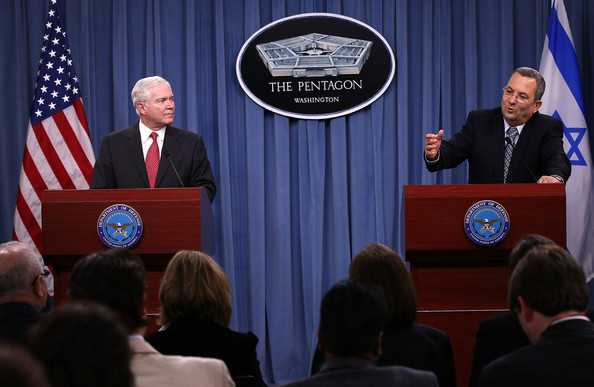
The Turkey-Israel Relationship in Jeopardy?
The actions of Israel against the Freedom Flotilla have important ramifications. Israel’s criminal actions in international waters has contributed to weakening the US-NATO-Israel military alliance.
The bilateral Israel-Turkey alliance in military, intelligence, joint military production is potentially in jeopardy. Ankara has already announced that three planned military exercises with Israel have been cancelled. “The government announced it was considering reducing its relations with Israel to a minimum.”
It should be understood that Israel and Turkey are partners and major actors in the US-NATO planned aerial attacks on Iran, which have been in the pipeline since mid-2005. The rift between Turkey and Israel has a direct bearing on NATO as a military alliance. Turkey is one of the more powerful NATO member states with regard to its conventional forces. The rift with Israel breaks a consensus within the Atlantic Alliance. It also undermines ongoing US-NATO-Israel pre-emptive war plans directed against Iran, which until recently were endorsed by the Turkish military.
From the outset in 1992, the Israeli-Turkish military alliance was directed against Syria, as well as Iran and Iraq. (For details see See Michel Chossudovsky, “Triple Alliance”: The US, Turkey, Israel and the War on Lebanon, Global Research, 2006)
In 1997, Israel and Turkey launched “A Strategic Dialogue” involving a bi-annual process of high level military consultations by the respective deputy chiefs of staff. (Milliyet, Istanbul, in Turkish 14 July 2006).
During the Clinton Administration, a triangular military alliance between the US, Israel and Turkey had unfolded. This “triple alliance”, which in practice is dominated by the US Joint Chiefs of Staff, integrates and coordinates military command decisions between the three countries pertaining to the broader Middle East. It is based on the close military ties respectively of Israel and Turkey with the US, coupled with a strong bilateral military relationship between Tel Aviv and Ankara.
Starting in 2005, Israel has become a de facto member of NATO. The triple alliance was coupled with a 2005 NATO-Israeli military cooperation agreement which included “many areas of common interest, such as the fight against terrorism and joint military exercises. These military cooperation ties with NATO are viewed by the Israeli military as a means to “enhance Israel’s deterrence capability regarding potential enemies threatening it, mainly Iran and Syria.” (“Triple Alliance”: The US, Turkey, Israel and the War on Lebanon).
The Issue of Territorial Waters
Israel’s blockade of Gaza is in large part motivated by the broader issue of control of Gaza’s territorial waters, which contain significant reserves of natural gas. What is at stake is the confiscation of Palestinian gas fields and the unilateral de facto declaration of Israeli sovereignty over Gaza’s maritime areas. If the blockade were to be broken, Israel’s de facto control over Gaza’s offshore gas reserves would be jeopardy. (See Michel Chossudovsky,War and Natural Gas: The Israeli Invasion and Gaza’s Offshore Gas Fields, Global Research, January 8, 2009. See also Michel Chossudovsky, The War on Lebanon and the Battle for Oil, Global Research, July 23, 2006)
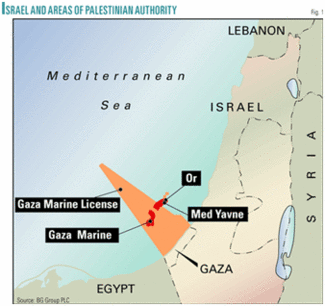
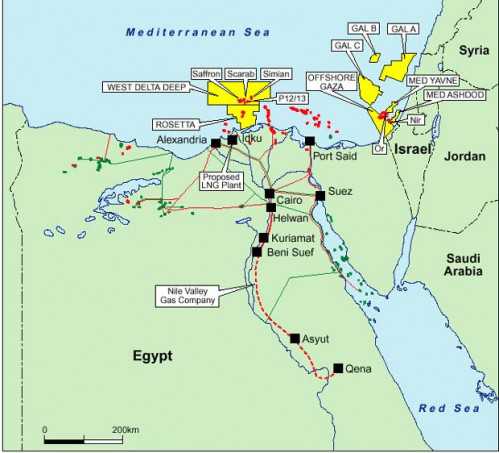
, 6.6.2010


